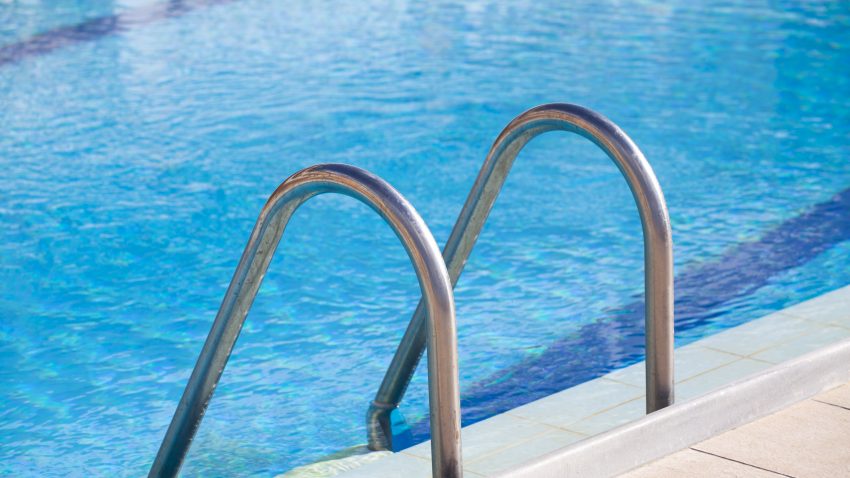Acid Wash Pool Costs in Ahwatukee 2024

Gardening in Arizona in September involves transitioning from the hot summer to cooler fall weather. Here are some tips to keep your garden thriving:
Planting
- Vegetables:
- Start planting cool-season vegetables like lettuce, spinach, kale, broccoli, cauliflower, and carrots.
- You can also plant root vegetables like radishes, beets, and turnips.
- Flowers:
- Plant fall-blooming annuals such as marigolds, zinnias, and cosmos.
- Perennials like chrysanthemums, asters, and pansies can be planted for fall color.
- Herbs:
- Plant herbs like cilantro, parsley, dill, and mint.
- Trees and Shrubs:
- September is a good time to plant trees and shrubs, giving them time to establish roots before the cooler weather sets in.
Watering
- Adjust Watering Schedules: As temperatures begin to cool, reduce the frequency of watering but ensure deep watering to promote root growth.
- Water Early: Water your plants in the early morning to reduce evaporation and give plants time to absorb moisture before the heat of the day.
Soil and Mulch
- Mulch: Add a layer of mulch around plants to retain moisture, regulate soil temperature, and suppress weeds.
- Soil Preparation: Enrich your soil with compost or organic matter to improve soil structure and fertility.
Pruning and Maintenance
- Deadheading: Remove spent flowers to encourage new blooms and prevent plants from setting seed.
- Pruning: Lightly prune shrubs and perennials to shape them and remove any dead or diseased growth.
- Weed Control: Keep on top of weeds to prevent them from competing with your plants for nutrients and water.
Pest Control
- Monitor for Pests: Keep an eye out for pests like aphids, caterpillars, and spider mites. Use organic pest control methods if needed.
- Beneficial Insects: Encourage beneficial insects like ladybugs and lacewings, which help control pest populations.
Lawn Care
- Seeding: If you plan to overseed your lawn with winter ryegrass, prepare the lawn by dethatching and aerating in late September.
- Mowing: Adjust your mower height to keep the grass slightly longer, which helps shade the soil and retain moisture.
General Tips
- Plan for Frost: In higher elevations, be prepared for the first frost. Have frost cloths or other protective measures ready for sensitive plants.
- Garden Cleanup: Clean up any garden debris to prevent pests and diseases from overwintering in your garden.
- Container Plants: Check and refresh the soil in container plants, and move them to areas with appropriate sunlight and protection from wind.
By following these tips, you can ensure a healthy and productive garden in Arizona throughout September.
Understanding the various swimming pool chemicals and their purposes is crucial for maintaining a clean, safe, and healthy pool environment. Here’s a breakdown of the most common swimming pool chemicals and their uses:
1. Chlorine
- Purpose: Primary disinfectant used to kill bacteria, viruses, and algae.
- Forms: Available as tablets, granules, or liquid.
- Common Types:
- Calcium Hypochlorite: Granular form, used for regular chlorination and shock treatments.
- Sodium Hypochlorite: Liquid form, often used in commercial pools.
- Trichlor and Dichlor: Stabilized chlorine compounds, usually in tablet form, slow-dissolving.
2. Bromine
- Purpose: Alternative to chlorine, effective in killing bacteria and viruses.
- Advantages: Less irritating to the skin and eyes, works better in warmer water and over a broader pH range.
- Forms: Tablets or granules.
3. pH Adjusters
- Purpose: Maintain the correct pH level (7.2-7.6) for optimal chlorine effectiveness and swimmer comfort.
- Common Types:
- Sodium Carbonate (Soda Ash): Raises pH.
- Sodium Bisulfate (Dry Acid) or Muriatic Acid: Lowers pH.
4. Alkalinity Adjusters
- Purpose: Stabilize pH levels and prevent fluctuations.
- Common Types:
- Sodium Bicarbonate (Baking Soda): Raises total alkalinity.
- Muriatic Acid: Lowers total alkalinity.
5. Calcium Hardness Adjusters
- Purpose: Prevent corrosion and scaling by maintaining proper calcium hardness levels (200-400 ppm).
- Common Types:
- Calcium Chloride: Raises calcium hardness.
- Muriatic Acid: Lowers calcium hardness indirectly by reducing the pH and total alkalinity.
6. Cyanuric Acid (Stabilizer or Conditioner)
- Purpose: Protects chlorine from being broken down by UV rays from the sun.
- Ideal Range: 30-50 ppm.
7. Algaecides
- Purpose: Prevent and control algae growth.
- Types: Copper-based and quaternary ammonia-based algaecides.
8. Shock Treatments (Oxidizers)
- Purpose: Remove contaminants, organic matter, and chloramines that cause cloudy water and unpleasant odors.
- Common Types:
- Calcium Hypochlorite: High chlorine content, used for weekly or bi-weekly shocking.
- Sodium Dichlor: Stabilized form, less likely to raise pH.
- Non-Chlorine Shock (Potassium Monopersulfate): Oxidizes contaminants without adding chlorine.
9. Clarifiers and Flocculants
- Purpose: Clear cloudy water by coagulating tiny particles into larger particles that can be filtered out.
- Clarifiers: Work gradually to improve water clarity.
- Flocculants: Quickly gather particles, causing them to sink to the bottom for vacuuming.
10. Metal Sequestering Agents
- Purpose: Prevent staining and discoloration caused by metals (iron, copper, manganese) in the water.
- Use: Especially important in areas with high metal content in the water supply.
Key Considerations
- Regular Testing: Test your pool water regularly to maintain proper chemical balance.
- Safety: Always follow manufacturer’s instructions for handling and adding chemicals.
- Storage: Store chemicals in a cool, dry place, away from direct sunlight and out of reach of children and pets.
Understanding these chemicals and their functions can help you maintain a sparkling, healthy pool that is safe and enjoyable for swimmers.
Pool Service in Ahwatukee, Arizona
[/vc_column_text][/vc_column][/vc_row]
BPC offers pool service in Ahwatukee, Arizona. We also offer pool maintenance and service, pool leak repair, weekly pool cleaning services, and green pool cleaning services. Give BPC a call at 480-907-7959 or text us at 602-570-8124. You can also get a free quote by filling out our contact form.
